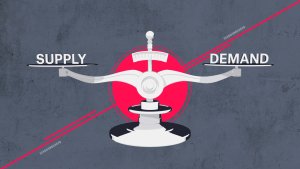In 2010, the 500 largest companies in the United States, otherwise known as The Fortune 500, generated $10.7 trillion in sales, reaped a whopping $702 billion in profits, and employed 24.9 million people around the world.
Historically this has been good news. After all, when these corporations have invested in the productive capabilities of their U.S. employees, Americans have typically enjoyed plentiful well paying and stable jobs. That was the case a half century ago.
Unfortunately, as Bill Lazonick points out in the interview below, it’s not the case today.
For the past three decades, top executives have been rewarding themselves with mega-million dollar compensation packages while American workers have suffered an unrelenting disappearance of middle-class jobs. Since the 1990s, this hollowing out of the middle-class has even affected people with lots of education and work experience.
As the Occupy Wall Street movement correctly recognized, the concentration of income and wealth of the economic top “one percent” of society has left the rest of us largely high and dry. Corporate profits are increasingly going to share buybacks or dividend distribution, but very little is going back into research and development efforts, capital reinvestment, and employment.
Corporations, in other words, are devoting increasing amounts of their considerable and growing financial resources to redistribution rather than innovation. And they are doing so based on the justification of “increasing shareholder value.”
However, as Lazonick points out, when the shareholder-value mantra becomes the main focus for companies executives usually concentrate on avoiding taxes for the sake of higher profits and don’t think twice about permanently axing workers. They also increase distributions of corporate cash to shareholders in the form of dividends and, even more prominently, stock buybacks.
When a corporation becomes financialized in this way, the top executives no longer concern themselves with investing in the productive capabilities of employees, the foundation for rising living standards. Instead they become focused on generating financial profits that can justify ever higher stock prices — in large part because, through their stock-based compensation, high stock prices translate into megabucks for these corporate executives themselves.
It’s not a pretty state of affairs. Lazonick discusses how we evolved from a society in which corporate interests were largely aligned with those of broader public purpose into a state where crony capitalism, accounting fraud, and corporate predation are predominant characteristics.
Lazonick makes a very powerful case that the ideology of “maximizing shareholder value” primarily works to the benefit of the very corporate executives who make corporate resource allocation decisions, and who derive high levels of remuneration from munificent stock option awards. As for the rest of us, we’re left to fight over the crumbs.
Interview Featuring
Also with
From the collection: s America's Dual Economy: Why the Middle Class Is Vanishing, Economics of Innovation
Video






